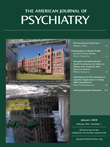“The Street Will Drive You Crazy”: Why Homeless Psychotic Women in the Institutional Circuit in the United States Often Say No to Offers of Help
Abstract
Many people who struggle with psychotic disorder often refuse offers of help, including housing, extended by mental health services. This article uses the ethnographic method to examine the reasons for such refusal among women who are homeless and psychiatrically ill in the institutional circuit in an urban area of Chicago. It concludes that such refusals arise not only from a lack of insight but also from the local culture’s ascription of meaning to being “crazy.” These data suggest that offers of help—specifically, diagnosis-dependent housing—to those on the street may be more successful when explicit psychiatric diagnosis is downplayed.



